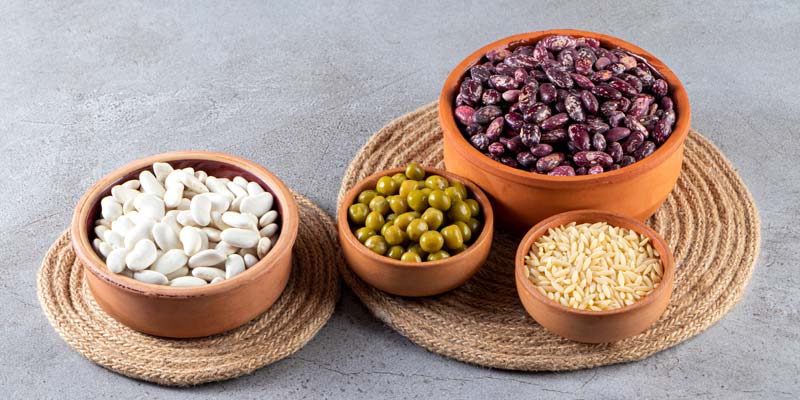Are you looking to boost your potassium intake? Potassium is an essential mineral that plays a crucial role in maintaining proper bodily functions, such as heart health, muscle function, and nerve transmission. Incorporating foods high in potassium into your diet can help ensure that you meet your daily potassium needs and support overall wellness. In this blog, we’ll explore some delicious and nutritious foods rich in potassium that you can easily incorporate into your meals.
What is Potassium?
Potassium is an electrolyte that helps regulate fluid balance, muscle contractions, and nerve signals in the body. It works in tandem with sodium to maintain proper fluid balance and blood pressure levels. A deficiency in potassium can lead to muscle weakness, fatigue, and even heart problems.
Yet, most Americans do not obtain adequate potassium from their diet, largely because of a deficiency in fruits and vegetables typical of the Western diet. The recommended daily intake for healthy adults in the United States is 4,700 mg.
Where does Potassium come from?
Potassium is found in a wide variety of plants, meats, and drinks. Potassium is also an ingredient used in some salt substitutes that people take to replace sodium in their diet. If you have kidney disease or take certain medicines, your potassium levels may be too high, so it is important to talk to your doctor before using a salt substitute.
5 Best Foods High in Potassium

Bananas: A Classic Source of Potassium
When it comes to foods high in potassium, bananas often steal the spotlight. These versatile fruits are not only delicious but also packed with potassium, making them an excellent choice for boosting your potassium intake. On average, a medium-sized banana contains about 400 mg of potassium, which is roughly 9% of the recommended daily intake for adults.
Sweet Potatoes: Nutrient-Rich Tubers
Sweet potatoes are another excellent source of potassium that deserves a place on your plate. These vibrant root vegetables are not only delicious but also loaded with essential nutrients, including potassium. A medium-sized sweet potato provides approximately 542 mg of potassium, making it a valuable addition to your diet.
Spinach: A Leafy Green Powerhouse
Leafy greens like spinach are nutritional powerhouses, and they’re also rich in potassium. Adding spinach to your meals can help boost your potassium intake while providing an array of other essential vitamins and minerals. One cup of cooked spinach contains around 839 mg of potassium, making it one of the most potassium-dense foods available.
Avocado: Creamy and Nutrient-Dense
Avocado lovers rejoice – your favorite fruit is also an excellent source of potassium! In addition to their creamy texture and delicious flavor, avocados pack a hefty dose of potassium. A medium-sized avocado contains approximately 975 mg of potassium, making it a great choice for potassium seekers.
Beans and Lentils: Plant-Based Powerhouses
Beans and lentils are not only affordable and versatile but also packed with potassium. These plant-based protein sources are excellent additions to any diet, offering a host of health benefits, including a significant amount of potassium. One cup of cooked black beans provides around 739 mg of potassium, while the same serving size of cooked lentils offers approximately 731 mg of potassium.
High Potassium Foods to Avoid

Chronic kidney disease can impair the kidneys’ capacity to eliminate excess potassium from the body. Elevated potassium levels can lead to severe symptoms such as irregular heart function and muscle cramps. Conversely, a deficiency in potassium can also result in significant complications.
Individuals with chronic kidney disease (CKD) may require dietary restrictions on high-potassium foods. A healthcare provider or dietitian can offer guidance tailored to each person’s specific needs.
The following foods are notably high in potassium, and individuals with CKD may need to limit their consumption. Conversely, some may need to increase intake if potassium levels are low:
- Nuts
- Salt substitutes containing potassium chloride
- Oranges and orange juice
- Prunes
- Raisins
- Beans and legumes
- Potatoes and sweet potatoes
- Bananas
- Various dairy products
- Avocados
- Spinach
- Tomatoes
- Salmon
How much Potassium do I need?
The required amount of potassium varies depending on factors such as age, life stage, and any existing medical conditions.
An imbalance of potassium levels in the body can impact your health, although this typically doesn’t occur solely due to dietary factors. Generally, most healthy individuals obtain sufficient potassium—and avoid excess—through their regular diet.
Conclusion
Incorporating foods high in potassium into your diet is essential for maintaining optimal health and well-being. From bananas and sweet potatoes to spinach and avocados, there are plenty of delicious options to choose from. By making a conscious effort to include these potassium-rich foods in your meals, you can ensure that you meet your daily potassium needs and support your overall health. So why not start incorporating these nutritious foods into your diet today? Your body will thank you for it!

